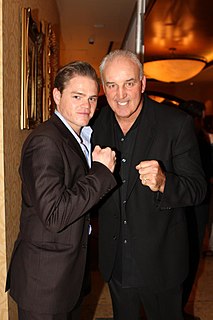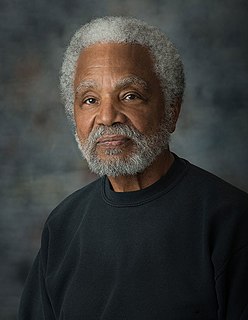A Quote by Ralph Waldo Emerson
I read your piece on Plato. Holmes, when you strike at a king, you must kill him.
Related Quotes
Through Plato, Aristotle came to believe in God; but Plato never attempted to prove His reality. Aristotle had to do so. Plato contemplated Him; Aristotle produced arguments to demonstrate Him. Plato never defined Him; but Aristotle thought God through logically, and concluded with entire satisfaction to himself that He was the Unmoved Mover.
I got messed up between my fight with Ken Norton and my fight with Larry Holmes; I got messed up with alcohol. I needed at least a year more experience, with three or four more fights before I fought Holmes. But I couldn't get any fights. Don King had all the contenders, and unless I signed myself over to him, I couldn't get a fight.
And let your best be for your friend. If he must know the ebb of your tide, let him know its flood also. For what is your friend that your should seek with him hours to kill? Seek with him always hours to live. For it is his to fill your need, but not your emptiness. And in the sweetness of friendship, let there be laughter, and the sharing of pleasures. For in the dew of little things the heart finds its morning and is refreshed.
I have learned a new form of service from the wars of Frederick, king of Prussia. It is not necessary to approach the enemy in order to attack him. In fleeing from him, it is possible to circumvent him as he advances and fall on him from the rear and force him to surrender. What is needed is not to strike straight at evil but to withdraw to the sources of divine power, and from there to circle around evil, bend it and transform it into its opposite.
I worked with John Maybury on The Jacket and I think he's an extraordinary film-maker. I read the first drafts of this piece when I was working on The Jacket, and we'd so fallen in love with him that we thought he was the only person that should direct this! We wrote poems for him, we sent him champagne and cakes. Four years later he finally read it.
Martin Luther King really was a safety valve for white people. Any time it appeared that the black community was on the verge of really doing what we ought to do based on having been attacked, they put Martin Luther King on television. He was always saying, "We must use nonviolence. We must overcome hate with love." White people loved that. That's why they gave him a Nobel Prize. But when Martin Luther King started condemning the Vietnam War, that's when white people turned against him.










































